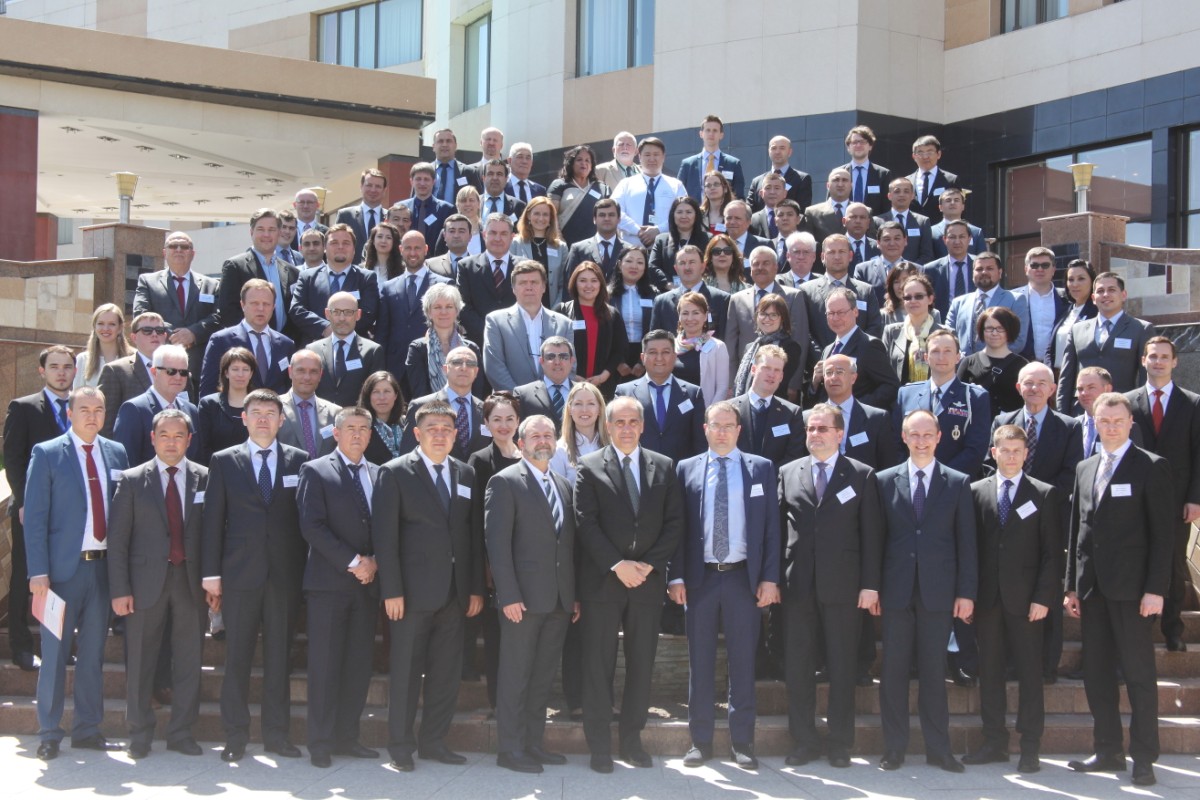Between 27-28 April Bishkek hosted the 12th Central Asia Border Security Initiative (CABSI) Conference, gathering over a hundred international participants to discuss a modern integrated border management (IBM) approach to strengthening the security of borders while facilitating legitimate movements and trade. The conference is the result of a cooperation between the EU, the Austrian Federal Ministry of the Interior and the Border Management in Central Asia Programme (BOMCA), with the support of the Organisation for Security and Cooperation in Europe (OSCE). Participants at the event included officials from Kazakhstan, Kyrgyzstan, Tajikistan, Turkmenistan, Uzbekistan, Afghanistan, EU Member States – Austria, Finland, Latvia, Lithuania, and other countries playing an important role in the region, as well as key international actors in the field of migration such as ICMPD, IOM, UNHCR, and UNODC.
In his welcoming speech Mr. Emil Kaikiev, Deputy Minister of Foreign Affairs of the Kyrgyz Republic, underlined that the EU Strategy on Central Asian Countries adopted in 2007 and reviewed in 2015 created an important dialogue platform for regional cooperation between Central Asian states in the security area and expressed the hope that the event would contribute to the fight against violent extremism and transboundary crime, management of irregular migration flows and trade facilitation.
Mr. Johann Bezdeka, Deputy Director General of the Austrian Federal Ministry of the Interior, underlined that efficient border management is crucial when it comes to limiting the movement of foreign terrorist fighters and stopping organised crime groups from smuggling people and goods between Europe and Central Asia.
The conference was structured into three thematic panels, focusing on the issues of border management, mixed migration flows and trade facilitation, where participants reported on the results achieved during the past years, and gaps and challenges to overcome. During the discussions the participants looked into issues of coordination amongst Central Asian states and international stakeholders, and possible follow-up activities to further promote border management and security. While important challenges were defined, such as resource constraints, tension in border areas, limited cross-border movement, trade obstacles, and emerging security and development threats, the delegates fully committed themselves to continuing the cooperation and joint efforts and highlighted the importance of keeping this multi-partner platform.
As mentioned during the press conference by Mr. Peter Burian, EU Special Representative for Central Asia, stability and security issues are priority areas of the EU strategy for Central Asia. “The European Union will support Central Asian countries in the fight against existing border threats, including violent extremism, radicalisation, organised crime, and drugs trafficking”, he said.
The Central Asia Border Security Initiative was launched in 2002 on the initiative of the Austrian Federal Ministry of the Interior to provide a forum for coordination and discussion of the programme activities and strategic objectives of EU-funded programmes in the region. Since then the CABSI’s role has gone far beyond the framework of an information exchange platform; it has proven itself to be a mechanism for stakeholder dialogue and coordination of international efforts on border management in Central Asia.

